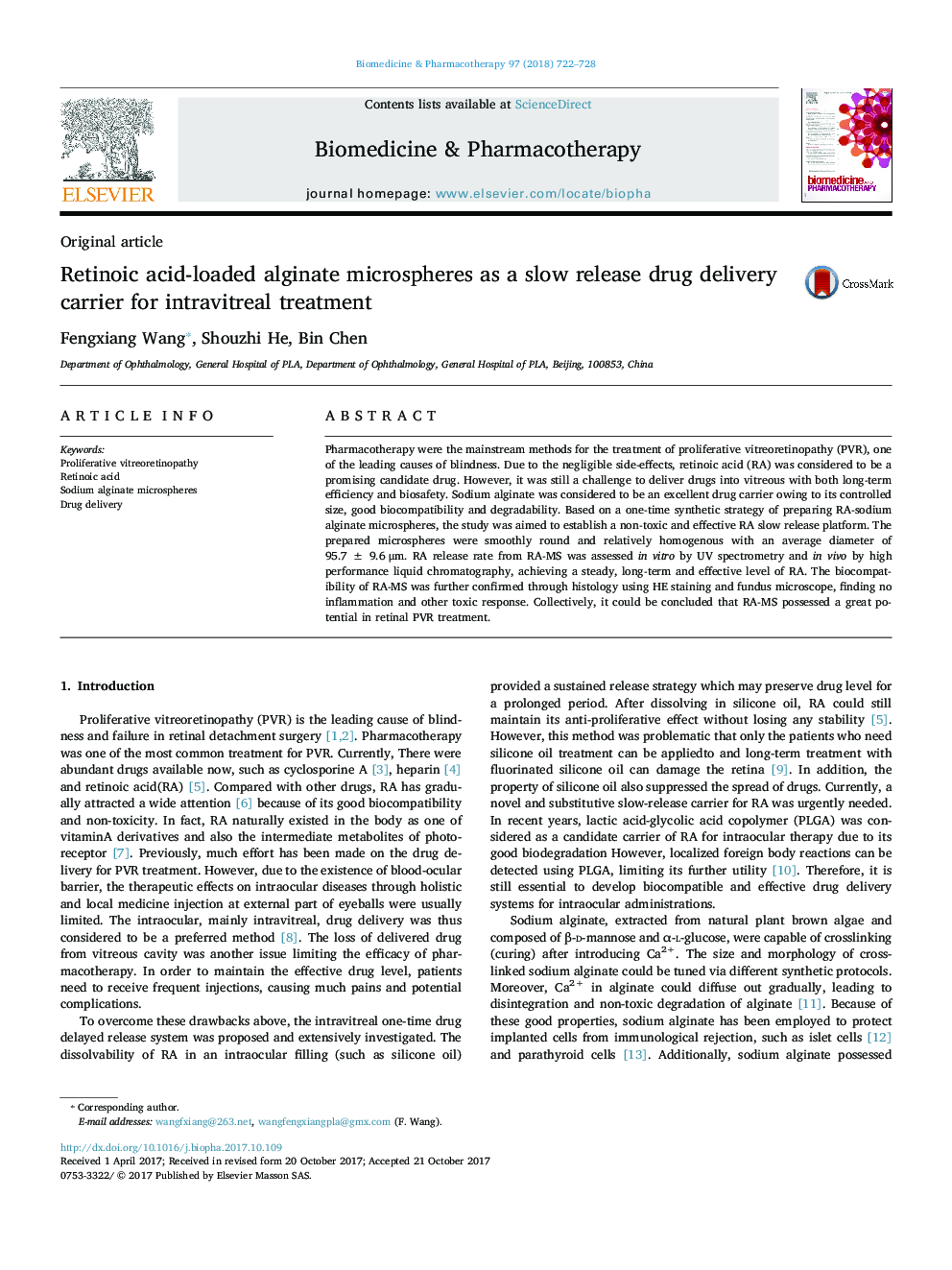| Article ID | Journal | Published Year | Pages | File Type |
|---|---|---|---|---|
| 8526460 | Biomedicine & Pharmacotherapy | 2018 | 7 Pages |
Abstract
Pharmacotherapy were the mainstream methods for the treatment of proliferative vitreoretinopathy (PVR), one of the leading causes of blindness. Due to the negligible side-effects, retinoic acid (RA) was considered to be a promising candidate drug. However, it was still a challenge to deliver drugs into vitreous with both long-term efficiency and biosafety. Sodium alginate was considered to be an excellent drug carrier owing to its controlled size, good biocompatibility and degradability. Based on a one-time synthetic strategy of preparing RA-sodium alginate microspheres, the study was aimed to establish a non-toxic and effective RA slow release platform. The prepared microspheres were smoothly round and relatively homogenous with an average diameter of 95.7 ± 9.6 μm. RA release rate from RA-MS was assessed in vitro by UV spectrometry and in vivo by high performance liquid chromatography, achieving a steady, long-term and effective level of RA. The biocompatibility of RA-MS was further confirmed through histology using HE staining and fundus microscope, finding no inflammation and other toxic response. Collectively, it could be concluded that RA-MS possessed a great potential in retinal PVR treatment.
Related Topics
Health Sciences
Medicine and Dentistry
Oncology
Authors
Fengxiang Wang, Shouzhi He, Bin Chen,
